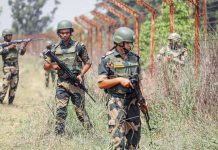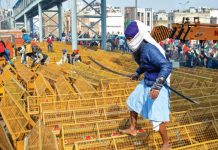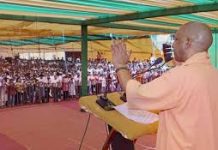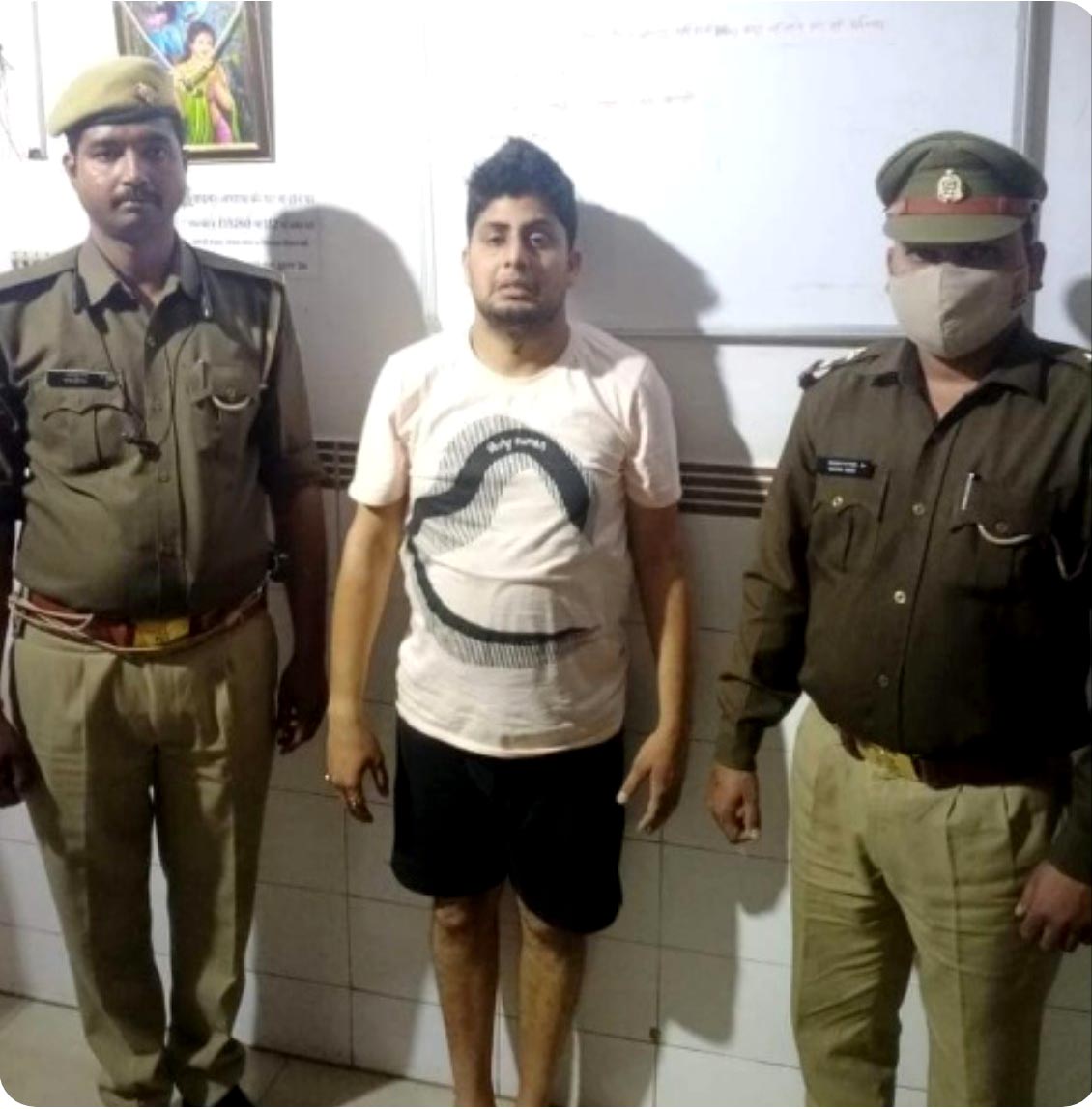
The recent arrest of three scribes in UP’s Balia, including two representing a leading newspaper chain Amar Ujala, has shocked the journalist fraternity. The incident came on the heels of the arrest of Agra-based journalist for reporting rigging in UP Assembly polls, writes Mudit Mathur.
Amid unacceptable undemocratic treatment to most vibrant pillar of parliamentary democracy, press and media, and growing targeted attacks on the journalists in many states causing anxiety among the intelligentsia of the society about the future of their rights to express themselves freely and voice dissenting views against the governments and their agencies highlighting their shortcomings and failures in governance. The freedom of the press is in peril and under continuous stress so as the future of our composite democratic behaviour.
Free speech and expression are inherent guarantee under Constitution of India and no pre-restraints can be imposed on this right by the government. The apex court has also taken cognizance of the matter using draconian laws on the journalists and social activists in a brazen use of power and arbitrary imposition of such laws on account of their conflicting views on various policies, programmes, political ideology and selective implementation of programmes from public exchequer. So, if you enter in such conflict areas, be ready to face the music. The more serious trend is acceptance of dissent and in reaction an effort is to criminalise expression of dissent with branding it anti-social, anti-national, inflammatory and incitement of hate. Even exposing corruption could be like inviting problems for the journalists.
Call of duty demand for a journalist is to bring true and correct facts in the public domain without fear or favour, affection or ill will – maintaining this equilibrium is the most challenging job for him with all official channels by and large closed for him to have their version on a story. Now with the new model of governance there is very limited scope for free and fair journalism. Beyond the unilateral press release or twitter handles all sort of media communications are restricted to selective leaks that are often one-sided loaded with aim to score political targets. Thus, space for free and unbiased expressions are rapidly shrinking impacting people’s right to know – which is a constitutional guarantee as a fundamental right of every citizen.
The latest trend that was seen behind the arrest of three local journalists in Balia including two representing leading newspaper chain Amar Ujala sent shock waves in journalist fraternity all over the country on whose exposure with regard to syndicate operating to leak and send solved key answers to contracted students qualifying the examinations securing high marks. Compromising the sanctity and purity of examination ultimately hurt the prospects of innocent, brilliant and meritorious students due to mass coping syndicate flourishing under patronage of corrupt system responsible to conduct fair examinations.
The case of Balia journalist is unique example of administrative callousness and high-handedness as it has in retaliation falsely implicated the journalists for paper leak and arrested them in the most brazen manner. Days after the Uttar Pradesh Board Class 12 English exam paper was leaked in Ballia district, the police have arrested three local journalists who reported the incident. On March 30, the question paper for the Intermediate English exam was leaked and copies of the solved paper went viral on the internet, following which the exam was cancelled in 24 districts.
Ballia’s District Inspector of Schools (DIoS) Brajesh Kumar Mishra was suspended and later arrested in the matter. So far, a total of 34 people were arrested in connection with the incident, including three scribes – Ajit Kumar Ojha, Digvijay Singh and Manoj Gupta under grave offenses.
In his statement, Singh wrote that he reports from Ballia district’s Nagra for Amar Ujala and is also the Block President of the National Union of Journalists (India) .“OnMarch 29, I received a copy of the solved question paper for the Class 12 Sanskrit examination from his sources and immediately reported the same to his newspaper’s office. The story was published by the daily, followed by another report published the next day about Class 12 English question paper leak,” He added, “I merely performed my journalistic duties towards the society at large, yet administration got me arrested along with another scribe (Ojha). What is my fault? I have done nothing wrong exposing paper leak syndicate and its active connivance with the top administration who protected such unscrupulous unlawful activities,” he pleaded.
Earlier, Agra-based journalist Gaurav Bansal (39) was arrested for allegedly reporting rigging in the Uttar Pradesh assembly elections. Bansal alleged that he was arrested while he was asleep at home, at around 1 am on the night of March 24. He alleged that he was brutally thrashed by the police before being produced in the court the next morning.
Bansal had gone to Mandi Samiti to report after some videos of protesting SP had gone viral. Bansal was booked by the police on March 9, under IPC Sections 147 (rioting), 149 (unlawful assembly), 332 (voluntarily causing hurt), 353 (assault or criminal force to prevent public servant from discharging his duty), 504 (intentional insult with intent to provoke breach of the peace), as well as under Section 7 of the Criminal Law Amendment Act.
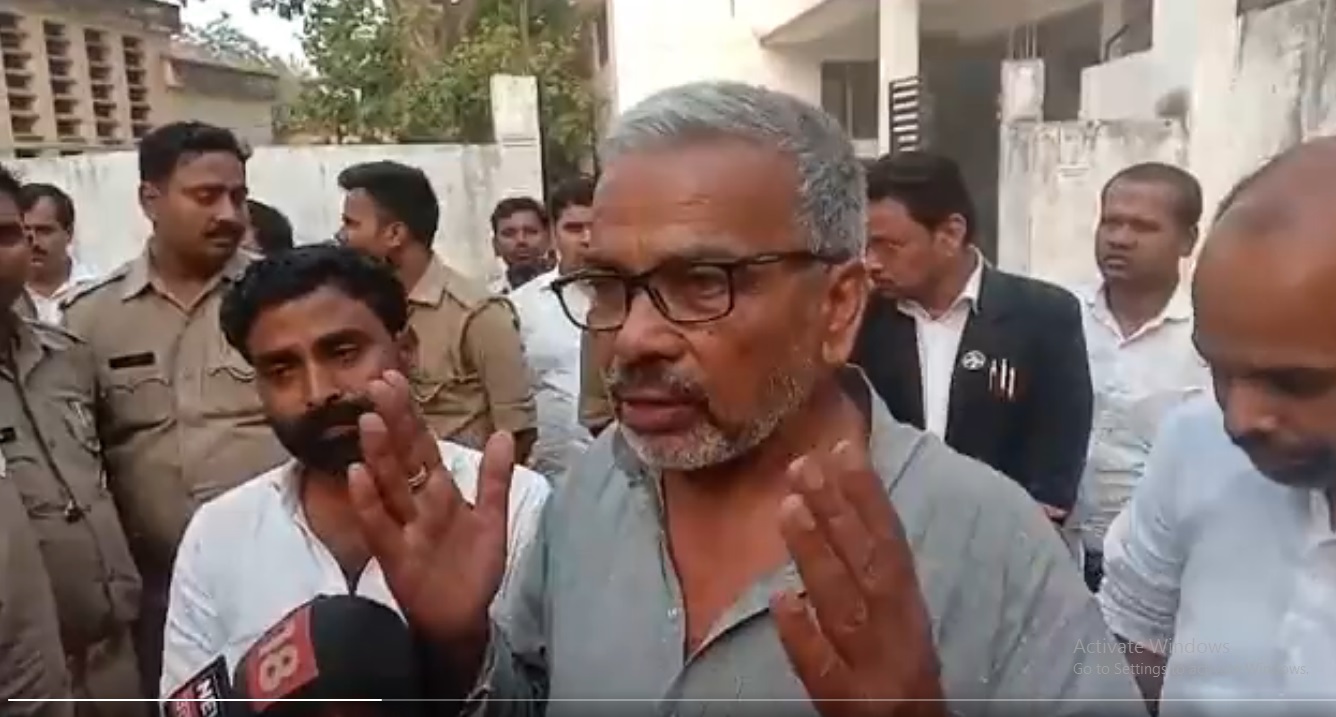
The Editors Guild of India has demanded a court-monitored independent inquiry into the arrest of Gaurav Bansal. The organisation said in its statement, “The Editors Guild of India is shocked by the way Agra-based journalist Gaurav Bansal was arrested and allegedly tortured for reporting alleged rigging in the recently held assembly elections.”
The EGI also urged the Ministry of Home Affairs (MHA) to take cognisance of police excesses against journalists and civil society members and issue directions to all law enforcement agencies to respect democratic values and freedom of press. “At the same time, strict action needs to be taken against those who misuse State power,” it stated. The EGI, in a statement, said it was “shocked and outraged by the manner in which the police… arrested, stripped, and humiliated a local journalist as well as some members of the civil society, on April 2, 2022…”
The action was in retaliation to a protest and associated news coverage of arrest of another member of civil society, it noted. “Kanishk Tewari, a local reporter was covering the protest against the arrest of a theatre artist who had allegedly made some indecent remarks against a Bharatiya Janata Party MLA and his son… shockingly, the police shot pictures of the journalist and activists and released them on social media in order to shame and humiliate them.”
Incident in Odisha
“In another incident in Odisha on April 7, police in the Balasore district chained a journalist’s leg to a hospital bed after an alleged case of assault. The journalist Loknath Delai though has claimed that he was arrested in response to his reporting of corruption by the police and various irregularities in their affairs,” it pointed out.
“The inhumane manner in which journalists, stringers, and district reporters are often treated by the police, in an effort to suppress any independent reporting is a matter of grave concern,” it added.
In a joint statement, the Press Club of India (PCI) and the Indian Women Press Corp (IWPC) also condemned “the reprehensible manner in which journalists, theatre artistes and other citizens were stripped and paraded naked in a police station in Seedhi district in Madhya Pradesh”.









